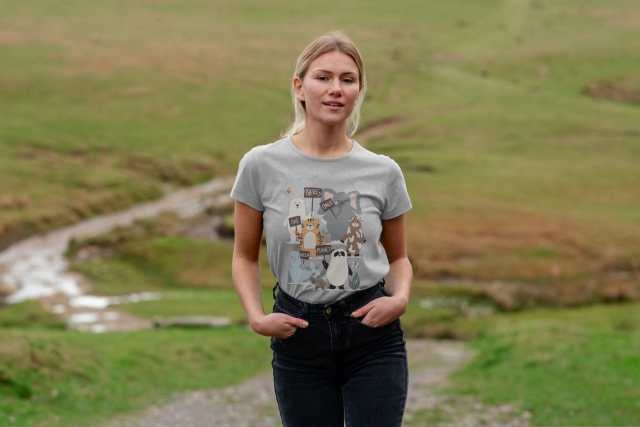
A diverse coalition of organizations is spearheading an ambitious initiative to conserve and restore mangroves in the Greater Florianópolis area on Brazil’s southern Atlantic coast. Recognized for their crucial role in mitigating Climate change and supporting biodiversity, mangroves are essential to the health and resilience of coastal ecosystems. The “Roots of Cooperation” project, known locally as “Raízes da Cooperação,” integrates restoration, environmental education, and scientific research to address the pressing challenges of Climate change.
Mangroves are unique tropical ecosystems found in brackish waters between the sea and river environments. They serve as nurseries for a variety of aquatic species and are incredibly efficient at carbon sequestration, storing up to 15 times more carbon per hectare than terrestrial forests. These ecosystems also protect coastal areas from erosion and the impact of sea waves, making them indispensable for coastal cities facing the consequences of rising sea levels and intensified storms.
Despite their importance, mangroves are under threat from urbanization, invasive species, Pollution, fires, and climate change. The Greater Florianópolis area, home to significant mangrove forests, is particularly vulnerable. Projections by the Intergovernmental Panel on Climate change (IPCC) indicate that sea levels could rise by 20 centimeters by 2050, exacerbating coastal erosion and increasing the risk of flooding.
In response, the Roots of Cooperation project involves a network of public institutions, civil society organizations, Conservation units, and community members. This collaborative effort focuses on restoring mangroves in densely populated river basins and protected areas, benefiting various social groups, including Indigenous communities and small-scale fishers.
Scientific research under the project is pivotal in understanding the role of mangroves in climate mitigation. Studies conducted by master’s and doctoral students focus on carbon sequestration and the impacts of sea level rise. For instance, research comparing natural and artificially created mangroves aims to determine their respective capacities for carbon storage. These findings will inform future Conservation strategies and policy-making.
Additionally, geographic and spatial analyses are being conducted to map flood-prone areas and assess the impacts of urban expansion on vulnerability to extreme weather events. This research highlights the need for effective public policies to prevent disaster scenarios and ensure sustainable urban development.
The project, running from February 2023 to February 2025, is structured around three main pillars: restoration, education, and research. Restoration activities include replanting native species, removing invasive ones, and restoring 10 hectares of mangroves and salt marshes in key areas. This work is expected to indirectly protect 55 hectares of interconnected ecosystems, enhancing their resilience.
Environmental education is another crucial aspect. The project has already engaged over 600 community members through seminars, workshops, and training courses on topics such as ecological restoration and citizen science. By the end of the project, 2,000 individuals are expected to participate, fostering a community-driven approach to Conservation.
There’s Only One Green Planet by Tiny Rescue: Climate Collection
Related Content:
Easy Ways to Help the Planet:
- Eat Less Meat: Download Food Monster, the largest plant-based Recipe app on the App Store, to help reduce your environmental footprint, save animals and get healthy. You can also buy a hard or soft copy of our favorite vegan cookbooks.
- Adopt-a-Pet: Visit WildWatchers, a watchdog platform specifically designed for animal, earth, and wildlife warriors to actively give back, rescue, and protect animals and the planet.
- Reduce Your Fast Fashion Footprint: Take initiative by standing up against fast fashion Pollution and supporting sustainable and circular brands like Tiny Rescue that raise awareness around important issues through recycled zero-waste clothing designed to be returned and remade over and over again.
- Support Independent Media: Being publicly funded gives us a greater chance to continue providing you with high-quality content. Please consider supporting us by donating!
- Sign a Petition: Your voice matters! Help turn petitions into victories by signing the latest list of must-sign petitions to help people, animals, and the planet.
- Stay Informed: Keep up with the latest news and important stories involving animals, the environment, sustainable living, food, health, and human interest topics by subscribing to our newsletter!
- Do What You Can: Reduce waste, plant trees, eat local, travel responsibly, reuse stuff, say no to single-use plastics, recycle, vote smart, switch to cold water laundry, divest from fossil fuels, save water, shop wisely, Donate if you can, grow your food, volunteer, conserve energy, compost, and don’t forget about the microplastics and microbeads lurking in common household and personal care products!
RELATED POSTS
View all



